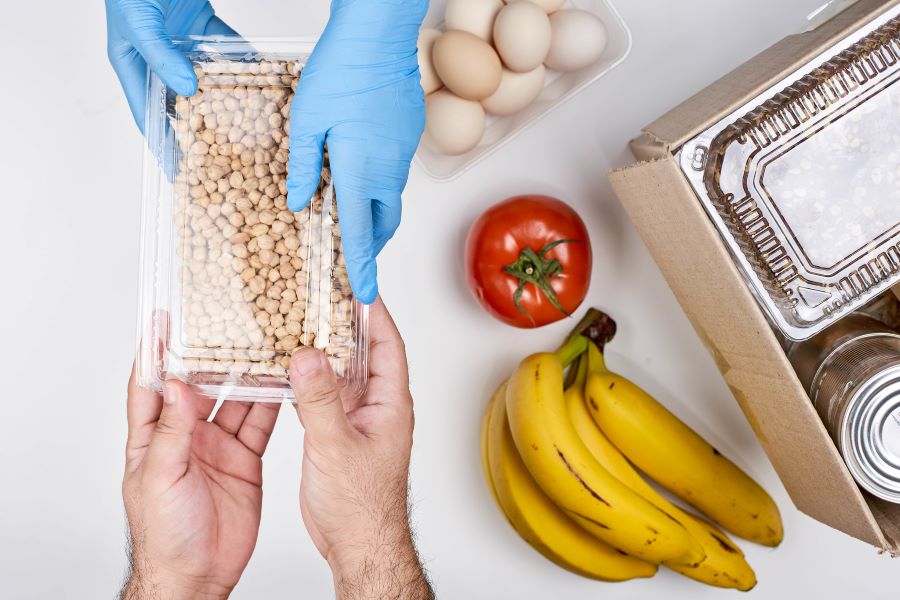18 months into the pandemic and nearly two hundred thousand people still depend on food bank donations in Madrid.
Thousands of families continue to rely on charities and associations for their necessities.
El País reported that for many in Madrid, holidays are about remembering past times, not planning for this year. “I’m from the Caribbean,” Isolina Medina told El País. “How can I not miss going on holiday if we have the beach on our doorstep where I come from!”
Isolina, 68, has lived in Madrid for half her life. She emigrated from the Dominican Republic in the 1990s to seek a better life for her family. Now they all share a rented apartment in Orcasitas, a Madrid neighbourhood of 23,000. Half the population there are from Latin America and the Caribbean. “The pandemic wanted to finish me off, but it couldn’t,” she says.
Without sufficient income
Almost 60,000 people in Madrid are still on the ERTE temporary redundancy scheme, according to the latest data from July 2021. Many households receive a large bag of food every fortnight from their neighbourhood associations.
Acompañando Procesos (Accompanying Processes), is one of those associations. “They come to pick it up at the local store because many are embarrassed to stand in line,” says Javier Leis, a spokesman for the association. Some 450 families now depend on this organisation, 50 fewer than during the height of the pandemic. “In August, most organisations close, but not us,” he adds. “People don’t stop eating in summer.”
Forgotten neighbourhoods
Some in Madrid are recovering economically from the pandemic, others continue to struggle. The neighbourhoods to the south of the city are almost always forgotten by the authorities.
Many citizens of those neighbourhoods watched as the few hours of work they had cleaning homes or accompanying the elderly or doing odd repair jobs disappeared when the coronavirus crisis hit in March 2020. Now they have no income.
For many, their day-to-day consists of going to the parish or the neighbourhood association to collect food bank donations. A lot of time is spent poring over supermarket bargain pamphlets. Some only visit the supermarket once a month, when there’s a bargain or a sale on. The official figures don’t reflect the unprocessed requests for help.
Lockdown effects unevenly distributed
Back in March 2020, Gonzalo López, a doctor in Economics from Madrid’s Complutense University, told EL PAÍS: “Unlike previous pandemics, this one may have a different social and economic impact. To begin with, the effects of lockdown are unevenly distributed according to income level.”
Nearly eighteen months later, thousands of families remain few resources and too few hours of work. An internal report from Madrid City Hall explained last October that, during the crisis, those who have turned to social services are mostly households with children.
Madrid has the largest percentage of children below the poverty line; approximately 230,000, 9% of the national total.
Hunger doesn’t go on holiday
Around 190,000 people in the Madrid region, depend on the Madrid Food Bank. “Hunger doesn’t go on vacation,” explains Elena Doria, spokesperson for the organisation.
None of its three large warehouses holding two million kilos every month have closed. “The profile of the people coming has stabilised,” she says. “Fifty percent are foreign and 50% are Spanish; most are from the middle and lower classes; people who lost their jobs on account of the pandemic.”
In February, the Red Cross reported they were addressing the needs of 91,000 Madrid families. “The profile of those coming has not changed either,” says spokesperson Isabel Álvarez.
Queues at the food banks
Aluche is one of the Madrid districts hardest hit by the pandemic. People still wait in line for food donations. Last Saturday about 400 families came to receive their monthly bag of produce, containing milk, oil, potatoes, kilos of vegetables and fruit, lemon ice cream and a couple of cans of vegetables.
Rogelio Poveda, 63, coordinates the distribution. “In August, things get worse,” he says. “The rise in electricity prices is a terrible blow; they call us saying they have no money to pay their bills.”
There is none of the usual chatter you find at a grocery. The people arrive with their shopping carts and line up, single file. “The men are more embarrassed to come, so it’s the women who pick up the groceries,” says Poveda.


